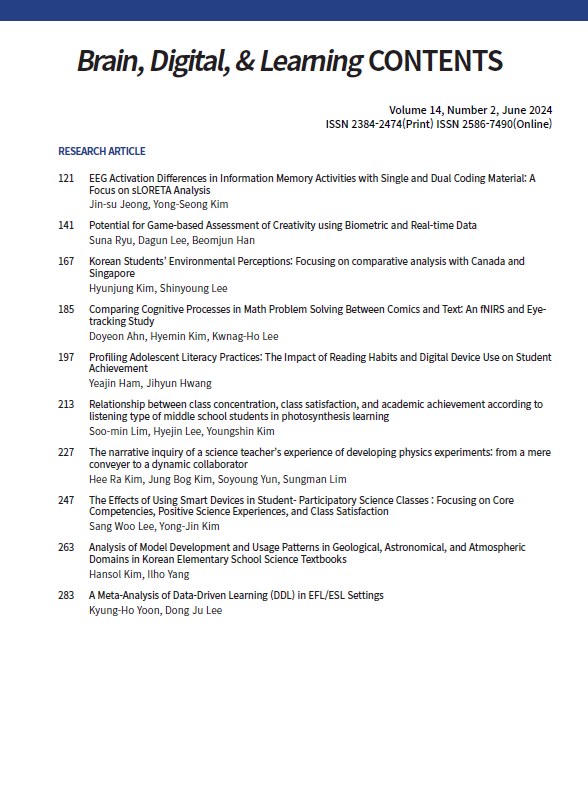The Effects of Using Smart Devices in Student- Participatory Science Classes : Focusing on Core Competencies, Positive Science Experiences, and Class Satisfaction
- 한국교원대학교 뇌·AI기반교육연구소
- Brain, Digital, & Learning
- 제14권 제2호
-
2024.06247 - 261 (15 pages)
- 67

Since the spread of COVID-19, schools have been equipped with environments that can use smart devices, and the curriculum emphasizes student-centered classes using digital devices. In this context, this study conducted a flipped classroom style of student-participatory science class using smart devices for 30 sessions targeting 60 male students in three middle school classes. A survey was conducted and analyzed to explore the effects of such science classes on the cultivation of core competencies in science emphasized in the national curriculum, improvement of positive experience indicators in science, and satisfaction with science classes. The results of the study showed that student-participatory science classes using smart devices were effective in cultivating core competencies such as scientific problem-solving ability, scientific communication ability, and scientific inquiry ability. It also had a significant effect on improving positive experience indicators in science, including students’ attitudes towards science and motivation for science learning. Students not only found the class interesting by using various programs with smart devices, but also understood the learning well and had high satisfaction with the science class. Therefore, it suggests that using smart devices in science classes can be a useful teaching and learning strategy. On the other hand, it requires the teacher’s guidance and management to use smart devices correctly and effectively during class. In the future, there is a need to explore ways to efficiently use various and useful learning apps and AI programs that can be utilized with smart devices.
Introduction
Methods
Results
Discussions
Conclusions and Implications
(0)
(0)